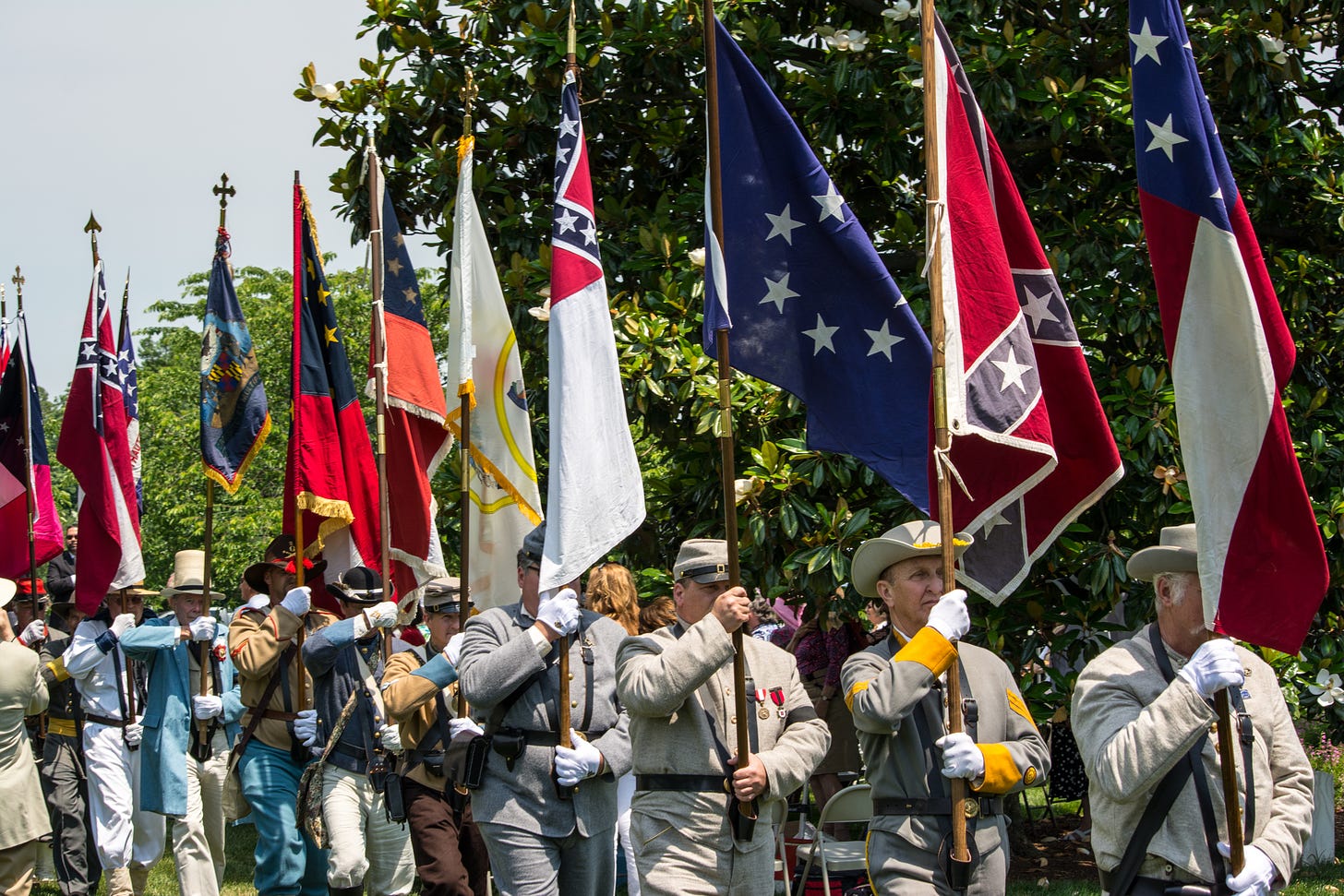Later today I will be talking with a fellow history teacher, who teaches at a private school and is planning a student trip to Civil War battlefields and other related sites. His trips are always well planned and the sites that are chosen emphasize perspective and the tension between history and memory. In addition to visiting historic sites, he also introduces his students to various individuals who have an interest in the subject.
We are going to talk specifically about whether I believe his students should be introduced to what he describes as a neo-Confederate historian.
This is what I advise.
Overall, I believe that students should be exposed to a wide range of views, but in this case we need to tread carefully. Is this individual a credentialed historian or simply self-describes as one? I suspect the latter. Perhaps he is a historian for a local chapter of the Sons of Confederate Veterans. Students need to understand the difference.
My larger concern, however, is with giving the Lost Cause such a prominent place alongside the other perspectives that I have no doubt these students will be exposed to during their travels. Not all perspectives should be given the same weight. There are plenty of ways to introduce students to the Lost Cause/neo-Confederate narrative of the Civil War and Reconstruction that don’t involve a personal conversation or interview.
Let’s also acknowledge that many of these people who embrace a Lost Cause narrative have problematic views on a wide range of contemporary issues related to race. If an interview is to take place at all, it should only happen after the individual in question has been properly vetted.
Back in 2019 I responded to a piece in The Washington Post that featured a member of the Sons of Confederate Veterans. I was critical of profiling a leader of the SCV in such a prominent newspaper. The author contacted me to discuss the issue. I stand by my response to that piece three years later.
The Lost Cause narrative is a discredited view. We should treat it as such.
For well over 100 years the Lost Cause functioned as something close to the official narrative of the Civil War in many parts of the country. You could find it in school textbooks, on street signs, the names of buildings, and, of course, in the hundreds of Confederate monuments and flags featured prominently in public spaces around the country.
It has never suffered for a lack of exposure.
The landscape of Civil War memory has shifted dramatically in recent years. Perspectives that have long been overshadowed by the Lost Cause have become much more visible. I would be much more interested in having my students meet someone who can talk about the legacy of Unionism in the South or what the war means to a descendant of a Black United States soldier. How about what the war means to the family of recently arrived immigrants?
Our students should absolutely be exposed to the rich and complex history of the Lost Cause, but we don’t need to go out of our way to continue to give its adherents a platform.





I agree with you. The lost cause should be taught as the effective propaganda that it was, not as history.
Lost causers are pushing lies, whether they know it or not. If he wants to expose them to the lies, there are any number of YouTube videos that feature those lies and he can, in the classroom, deconstruct and debunk each one of them without putting the lost causers in a position of perceived authority in front of the students. No historian of any credibility will be pushing lost cause lies.